
OR
Residents demand Darchula be reclassified as remote
Published On: October 16, 2017 06:00 AM NPT By: PREM CHUNARA
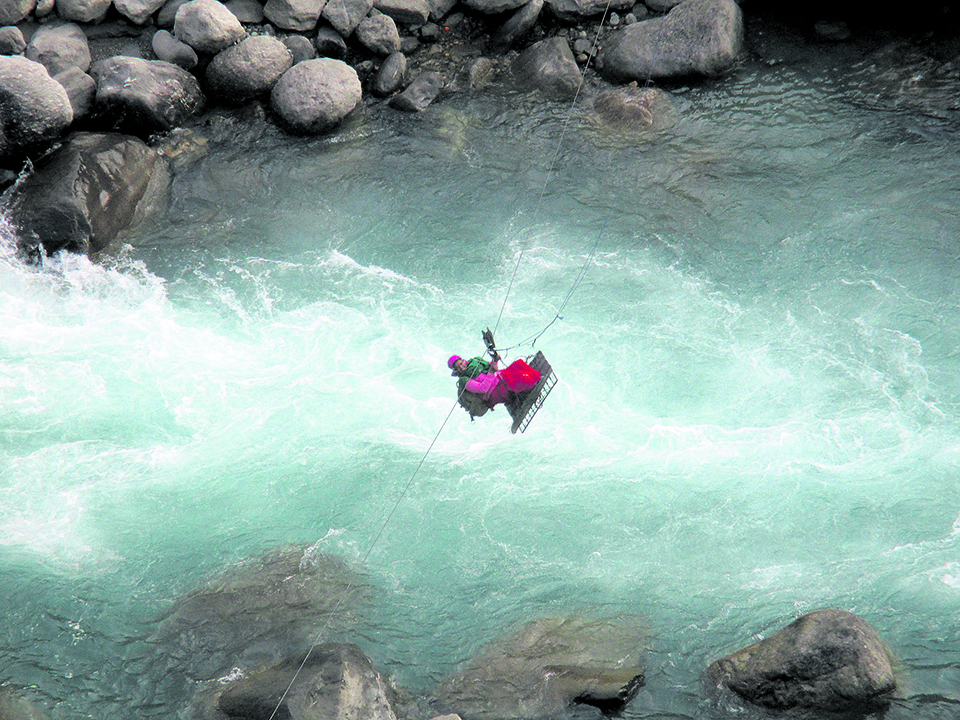
DARCHULA, Oct 16: Considering the upcoming provincial election, the government recently published a new classification on accessibility of areas. The new classification has upgraded many of the localities to accessible from backward region. None of the localities of Darchula have been considered remote in the report. And this has shocked the locals. If areas, where people have to use tuin (makeshift cable crossing) to cross river, is not remote zone, what a remote zone is supposed to be like, they wonder.
Tuin is still the means in many of these localities to cross river. When tuin does not work, they cannot cross over the river. Locals state that many villages in Darchula are isolated from other villages and have almost no facilities that sugam (which literally means areas which can be reached easily) areas are supposed to have. “By every means, we are living in the most backward zone,” said Pulendra Karki, chairperson of Duhu Rural Municipality.
“It seems the government did not consider any meaningful basis for classifying remote and accessible areas. The upgrades are completely insane,” he alleged. “We are quite shocked by the list,” he added.
There are two municipalities and seven rural municipalities in Darchula. None of these nine local bodies have minimum infrastructures that could be used as basis to term them as developed area. Locals say their struggle for basic facilities is the same, as before.
Penetration of road network in the district has increased in the recent years but just like in other parts of the country, the quality of these roads is very poor and most of them remain inaccessible through the year.
“Overall, little has changed for us over the years. It is very much unfair that they have not included our locality in remote zones listing,” he added.
Locals of several villages in Darchula walk for hours to reach market. Similarly, children have not ceased to use tuin to reach out to school. During monsoon, food crisis hits the villages due to poorer transportation service.
“We don’t have sufficient primary schools, teachers, health posts, health workers; we don’t get medicine on time. Let’s not talk about communication, power supply. These are just a few of the problems we face on a daily basis,” said Karki.
Central committee member of Nepali Congress and former minister Dilendra Prasad Badu also expressed reservation over the new classification. He said that that the classification is not fair at all. “Some of the most remote areas including Darchula have been considered accessible. It is not right,” he said.
He urged the government to review the basis that it used while putting up the new classification. Badu opined that the government owes the general public explanation.
“Even today, locals of many villages in Darchula buy a kilo of salt at Rs 80. Sometimes, they don’t even get it due to scarcity. How can an area where residents use tuin be classified as accessible? Badu asked.
Residents of areas near the Api Himal claim that they new classification has deprived them the most. They lament that they have to go to India for shopping, for job or for health services. And they make these journeys through a very hard trail. “We are not connected to our nation through internal roads. We are forced to use to travel to other parts of the country by using Indian roads,” said a local Kirshor Budha adding that in such a condition how can be their area termed as accessible.
Tuin over the Mahakali River is the only lifeline of the transportation of the locals, Budha said. Without the tuin, they are simply disconnected with rest of the world.
“There are number of remote villages here. Locals have to use tuin to cross the giant Mahakali River,” he said.
The first thing the locals of Darchula want to get rid of is tuin. They say that better road connectivity will usher better living conditions for them. “Unless we are connected to the nation through road networks, we will always remain backward,” Budha noted.
Karki urged the government to review its classification and warned that they will launch protest if it is not corrected. “We are not ready to accept the classification of accessible area as we are simply living a miserable life in lack of facilities. We want the government to review this and bring proper projects to address the problems we are facing,” he said.
Karki added that they have already shared their strong dissatisfaction over the issue with concerned authorities. “If concerned authorities don’t respond to our concerns, we will be forced to take it to street,” he said.
You May Like This
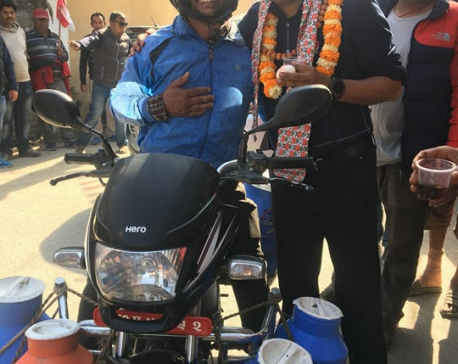
Residents demand stringent laws against contractors
KATHMANDU, Nov 7: Residents of Kalopul and Sifal Chaur urged Nepali Congress’s candidate Gagan Thapa to bring tougher laws against... Read More...

Gidikhola residents delighted as tractor reaches village
JUMLA, Mar 5: After waiting for ages, locals of Tatopani Rural Municipality-4, Gidikhola have finally been able to see tractors plying... Read More...

Top posts for naturalized not demand of Madhesi people: Tarai voices
JHAPA/SUNSARI/SAPTARI/MAH0TTARI, Nov 17: Locals and other stakeholders in various districts of the Tarai have strongly objected to the idea of allowing... Read More...
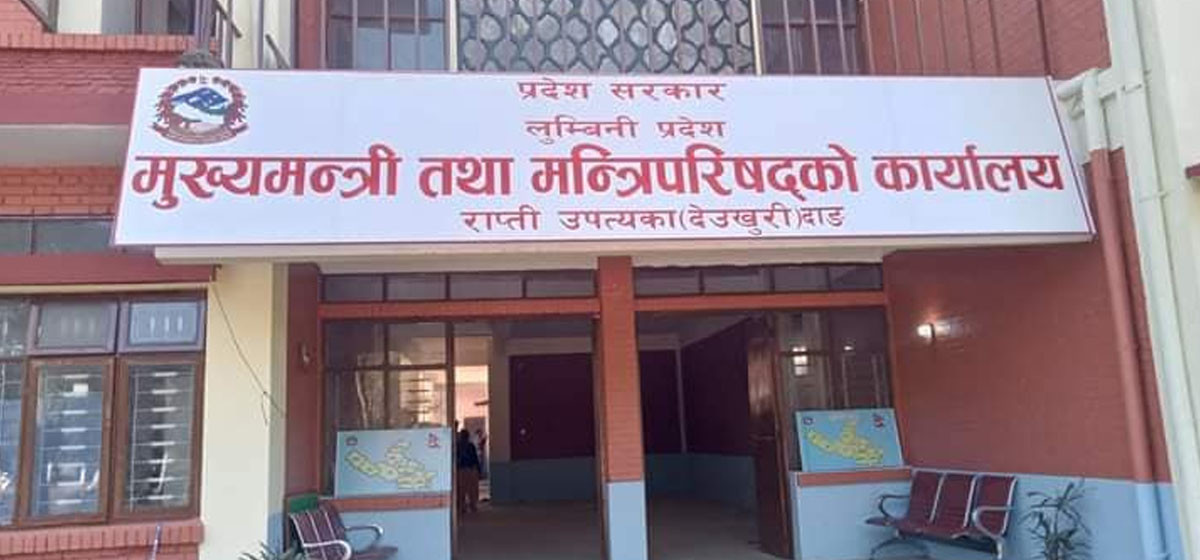
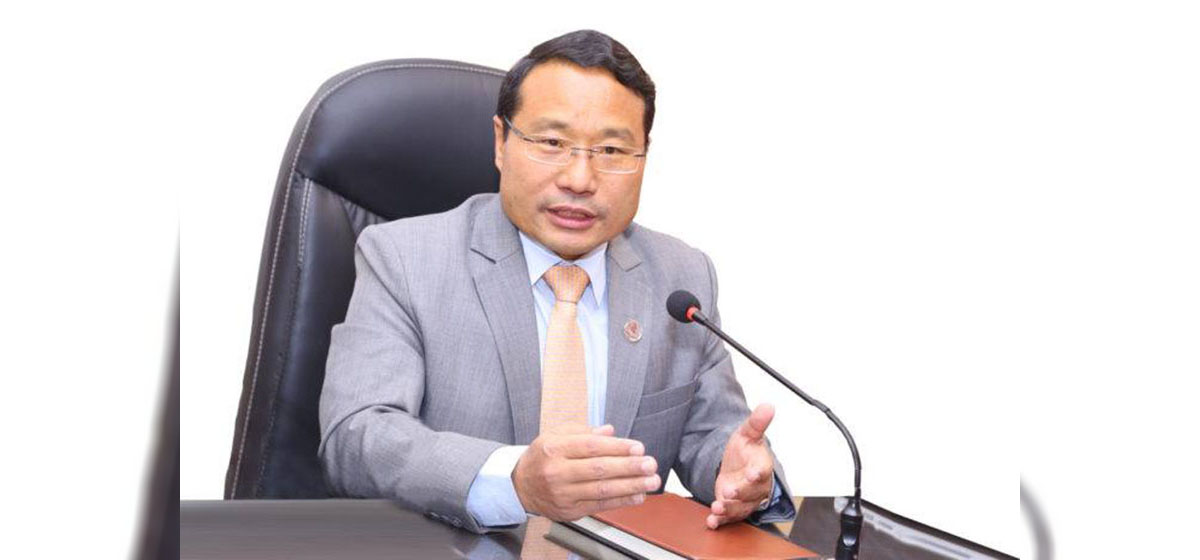
Just In
- CM Mahara expands Cabinet in Lumbini Province
- FinMin Pun addresses V-20 meeting: ‘Nepal plays a minimal role in climate change, so it should get compensation’
- Nepalis living illegally in Kuwait can return home by June 17 without facing penalties
- 'Trishuli Villa' operationalized with Rs 100 million investment
- Unified Socialist rejoins Lumbini Province govt following ministry allocation
- Police release ANFA Vice President Lama after SC order
- 16 hydroelectric projects being developed in Tamor River
- Cosmic Electrical completes 220 kV transmission line project













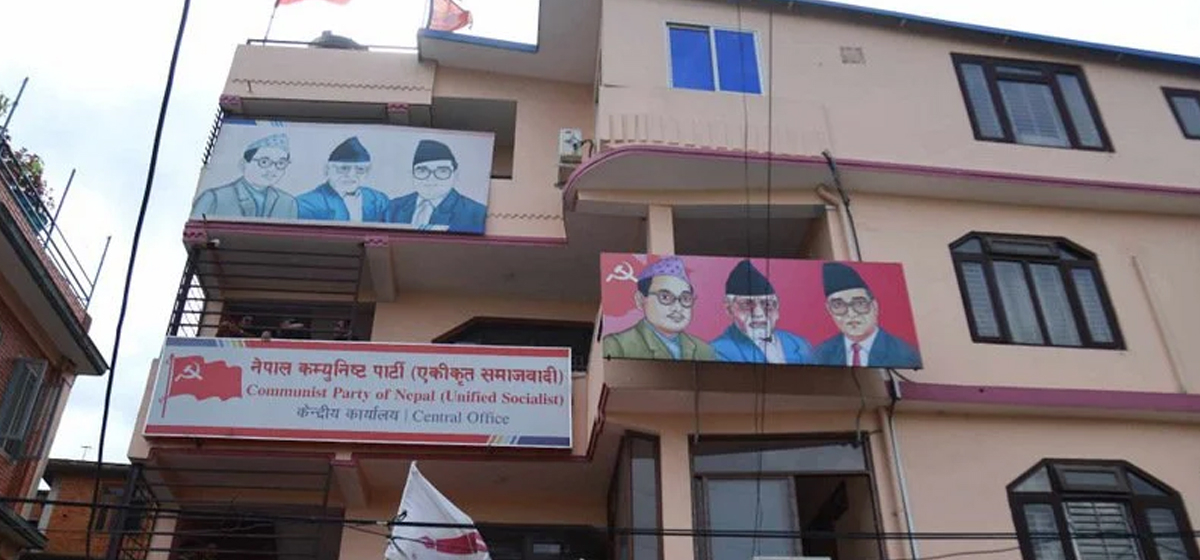


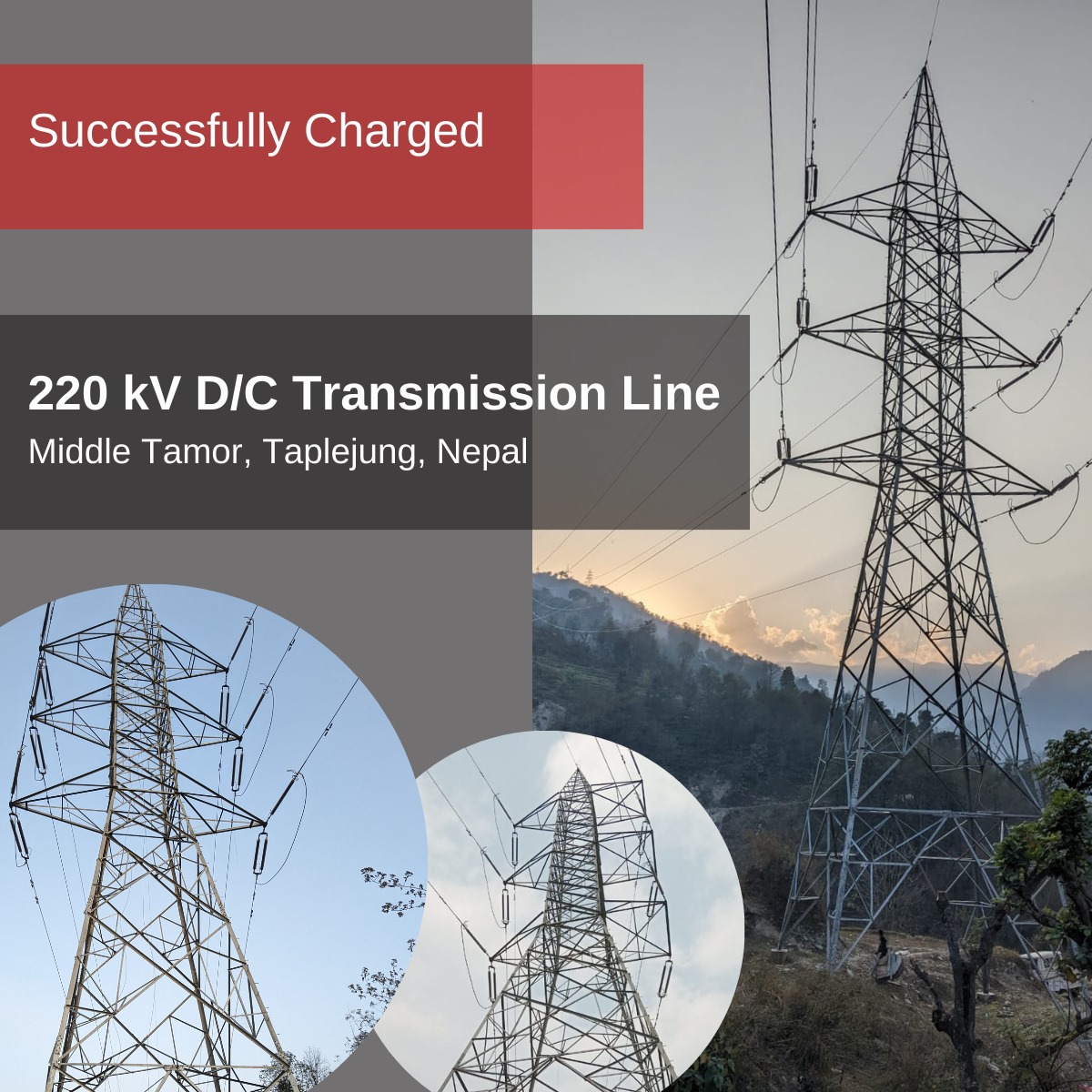
Leave A Comment